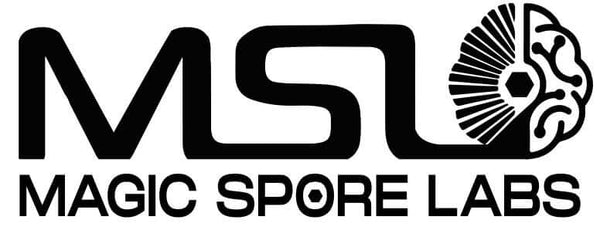
The Blue Meanie: A Guide to Cultivating and Enjoying this Psychedelic Mushroom
Share
The Blue Meanie mushroom, a name that both intrigues and mystifies. It's a variety that has captured the attention of mycologists, hobbyists, and the science-curious alike. If you're venturing into the fascinating world of mushrooms, particularly the psychedelic ones, you might find yourself drawn to the enigmatic allure of the Blue Meanie. This blog is your friendly guide to understanding the science behind cultivating and appreciating these mushrooms, without delving into any practices or effects that are better left to personal research and legal guidelines. Let’s embark on this scientific journey together, with curiosity as our compass.
The Mystique of the Blue Meanie
First, let's clear the air about the mystique surrounding the Blue Meanie. It’s not just any mushroom; it’s a variety known for its distinctive characteristics and its role in the broader study of mycology. Mycology, the study of fungi, is a field that has fascinated scientists and enthusiasts for centuries. Within this realm, the Blue Meanie stands out, not just for its name, which sparks curiosity, but for its unique traits that contribute to the biodiversity of fungi.
Understanding Spores: The Seeds of Fungi
To appreciate the Blue Meanie, one must understand the basics of fungal reproduction, particularly spores. Spores are akin to the seeds of the fungal world, tiny and numerous, they are the starting point of a mushroom's life cycle. Cultivating mushrooms from spores is a practice rooted in science, involving sterile techniques and controlled environments. This is where "Blue Meanie spores" come into the picture. These are the microscopic units that could potentially grow into the mushrooms that have attracted your interest. Cultivating these spores requires precision, patience, and a respect for the microscopic world.
The Role of Lab Quality Spores
In the quest to study and appreciate mushrooms like the Blue Meanie, the quality of the spores cannot be overstated. "Lab quality spores" refer to spores that have been harvested, stored, and distributed under scientifically controlled conditions. This ensures their purity and viability, which are crucial for research and educational purposes. Working with lab quality spores means engaging with the science of mycology at its most fundamental level, where every precaution is taken to maintain the integrity of the spores.
The Science of Appreciation
Appreciating the Blue Meanie, and mushrooms in general, is not just about the end result. It's about embracing the journey of discovery. It involves understanding the ecological role of fungi, their diversity, and their contributions to ecosystems and the planet. Mushrooms like the Blue Meanie are part of a vast and intricate web of life, with roles ranging from decomposers to symbionts. By appreciating these mushrooms through the lens of science, we learn not just about them, but about the interconnectedness of all life.

Navigating the Ethical and Legal Landscape
It’s paramount to approach the study and appreciation of psychedelic mushrooms like the Blue Meanie with an awareness of the ethical and legal considerations. The focus here is on the use of science to understand these organisms. Laws vary significantly by region, and it's crucial to stay informed and compliant with local regulations. The spirit of inquiry should be guided by respect for the law and for the scientific community's ethical standards.
The Joy of Mycological Discovery
Finally, the journey into the world of the Blue Meanie and other mushrooms is one of endless discovery. Mycology offers a unique blend of science, nature, and, yes, a bit of mystery. Whether you’re marveling at the structure of a spore under the microscope or understanding the ecological significance of fungi, there’s a profound joy in uncovering the secrets of these fascinating organisms. It’s a journey that can enrich your appreciation of nature and science in ways you might not have imagined.
In Conclusion
The Blue Meanie mushroom, with its distinctive characteristics and the curiosity it sparks, is a perfect gateway into the broader and incredibly rich field of mycology. By focusing on the science behind these mushrooms, from the role of spores to the importance of lab quality conditions, we can engage with the natural world in a deeply meaningful way. Let this be an invitation to view mushrooms not just as objects of fascination but as subjects of a scientific narrative that spans the microscopic to the ecological. So, here’s to the joy of discovery and the boundless wonders of the fungal kingdom.
